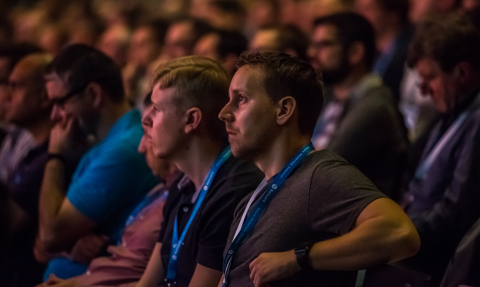What it takes to build an event community


For any event organizer, simply having one-off success shouldn’t be the main goal. Rather, professional event organizers seek ways to have year-round engagement with their audience. At some point, these efforts and great content nurture a loyal event community.
Suppose your event brand is the one that gives year-round value to your industry. If so, it can create cohesion among your audience, build a loyal event community and introduce your event organization as a market leader. To build an event community, event planners need to understand community wishes and their professional needs to be able to deliver content that should provide answers instead of raising more questions.
To grow an event community takes time, and since there is no all-in-one solution, organizers need to use various techniques.
One of the most basic mistakes happens at the beginning of the journey when conference organizers decide to charge less or give away free tickets. The idea is to get more people involved, but usually, it’s counter-productive. Free events generally have higher ‘no-show’ rates and devaluing the event can create a less emotional investment for people to attend.
It doesn't mean setting ludicrous prices at the beginning of your project. You can give attendees options to pay a reasonable price and donate a small amount of money simultaneously.
Make sure your social media posts look good and, in the case of a conference, involve star speakers. This can be achieved during event prep when developing conference content, as it is crucial in understanding your audience’s needs.
During the first conference year, you won’t build a loyal community instantaneously, but this shouldn’t disappoint you.
Engaging your audience is as much about targeting messages at the right time. Collecting data is a great way to start and the first feedback you receive from your audience can be an eye-opener. Various metrics can be collected simplified or more systematically using a professional event management platform that helps you identify the most engaged audience members.
Generating excitement and anticipation should be a priority for your team. There are several ways to get your community excited. One of the most proven ways is to communicate with forthcoming conference speakers. That's doable by creating speaker cards announcing the most prominent ones and those who bring new insights into the topics your conference will cover. Behind-the-scenes videos, images, press releases, or just a simple countdown to the event will also work. Still, you can also think of having community special offers (i.e., discounts, VIP passes, speaker area access passes).
Attendees are the most important stakeholders at any event or conference, but you should remember the business side too. Adding value to sponsors provides what it takes to build an event community, as you want loyal sponsors who will follow you anywhere. Mentioning your sponsors is a convenient way to thank them by providing additional awareness for them inside your community as a significant help in your intention to build your community.
Once your event is over, communication and interaction with the audience mustn't stop. This is what it takes to build an event community! Continue conversations to extend event excitement and energy for as long as possible (e.g., bring online topics that have received much interest on-site).
Networking plays a very important part at conferences and especially contributes to the growth of your community. Doing follow-ups with introductions and connections helps with growth, just the same as with feedback.
But let's not forget that organizers need to collect as much feedback as possible from all stakeholders while the impressions are still fresh and recognizable. In that case, you can use an event management platform or standalone apps to send automated emails conducting surveys about conference quality and areas where you can improve (e.g., satisfaction with the registration desk waiting times or catering).
Finally, organizers seeking to build loyal communities must think about memories. Providing video recordings from all conference stages, presentations and a wrap video helps build long-lasting relationships within your community.
Understanding your audience helps define their future needs and focus your content on building an event community. Using gathered data shows what worked well and what did not, at the same time, it helps event organizers to plan further events while keeping existing members happy and attracting future ones.